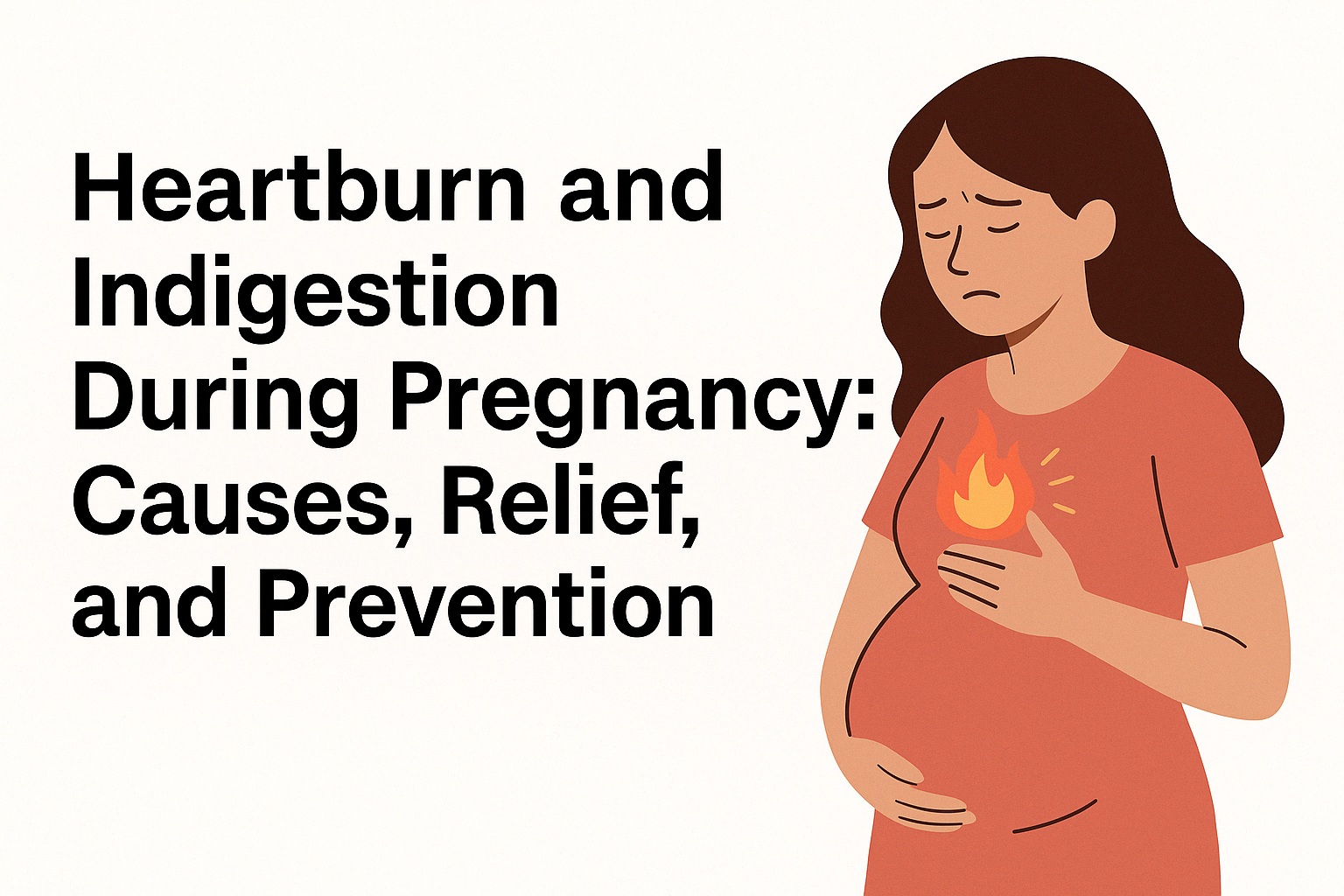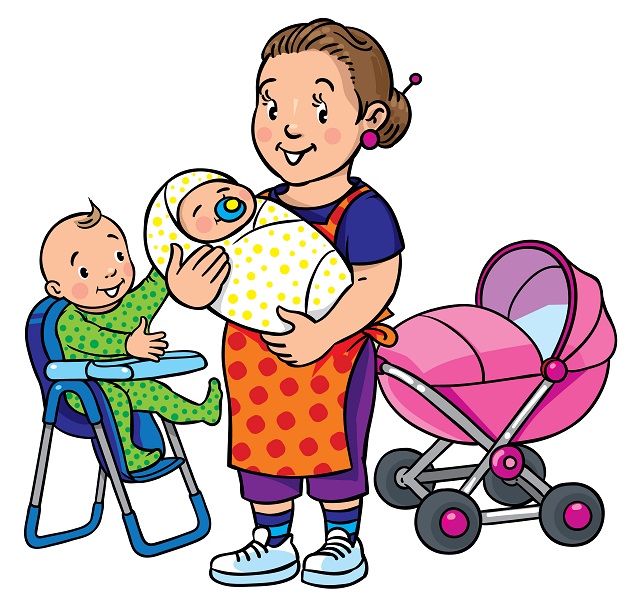Morning Sickness During Pregnancy
Morning sickness refers to nausea and vomiting in pregnancy. It has been estimated that 50 to 70 percent of expectant mothers experience nausea at some point during their first trimester. For some mothers, morning sickness may continue even after their first trimester.
While nausea makes you feel uncomfortable during the pregnancy, you do not need to worry as it is not harmful to you or your baby. Many doctors think that morning sickness is a good sign as it indicates that the placenta is developing well.
Causes of Morning Sickness
There is no exact cause of morning sickness during pregnancy. It occurs probably due to the higher level of hormone and higher sensitivity towards odours that women have during pregnancy.
The hormone Human Chorionic Gonadotropin (HCG) is thought to be related to morning sickness during pregnancy. This is because the level of HCG in the body peak at a time when morning sickness is worst for many women. However, scientists still do not know how it causes morning sickness.
Estrogen is another hormone that may trigger morning sickness. Estrogen rises rapidly during early pregnancy. The rising level of estrogen is thought to relax the muscles of the digestive tract, making digestion less efficient.
Other possible causes of morning sickness:
- Hormone levels
- Sensitivity
- Stress
- Fatigue
- Skipping meals
Hormone levels
Higher-than-average levels, such as when a woman is carrying multiples in her pregnancy, can cause more frequent morning sickness while lower levels may minimize or eliminate it. However, women with normal hormone levels may also experience little or no morning sickness.
Sensitivity
For some pregnant women, the smell of certain objects such as oily food can trigger morning sickness due to the higher sensitivity towards odours in pregnant women.
If you have a sensitive stomach where you always get carsick or seasick, you are more likely to have more severe nausea and vomiting in pregnancy. If you seldom have queasy days normally, you are less likely to have lots of them when you are expecting.
Stress
It has been well-established that emotional stress can cause gastrointestinal upset, so it is not surprising that symptoms of morning sickness tend to worsen when the pregnant woman is more stressed.
Fatigue
Physical or mental fatigue can also exacerbate the symptoms of morning sickness. Conversely, severe morning sickness can increase fatigue.
Skipping meal
With an empty stomach, the expecting mother will be more likely to experience morning sickness.
Eating something can help to settle the stomach and ward off the nauseous feeling.When should you see the doctor for morning sickness?
You should consult a doctor if you are experiencing excessive nausea and vomiting that prevents you from keeping any food down.
Furthermore, if vomiting is accompanied by pain or fever or if it persists well into the second trimester (after 12th week), it is recommended that you see the doctor.
Relieving Morning Sickness
The following foods can be useful in combating your morning sickness.
1. Ginger
Ginger has been found to be effective in relieving morning sickness. You may make ginger tea by grating and boiling ginger in water. You may also cut it into small pieces and put some sugar on it. Whenever you feel nauseous, you can chew a small piece of it.
2. Soda Cracker
As soda cracker is alkaline, it can help to absorb the acids in your stomach. Excessive acids in the stomach can cause nausea.
3. Lemon
Lemon has a refreshing taste and may help to soothe the pregnant woman's stomach. You can sprinkle some lemon juice on a fruit salad or add lemon to your smoothie to help relieve morning sickness.
Besides the above three foods, wintermelon and sugar cane are also effective in relieving your morning sickness.
How to prevent morning sickness:
1. Eat early in the morning
You can have a couple of soda crackers by your bed before getting up in the morning. Allow some time for your body to digest them and get up slowly once you are ready. Nausea most likely happens in the morning as your stomach is empty after a long night’s sleep. When your stomach is empty, the acids churning around inside have nothing to digest but your stomach lining, thus causing nausea.
2. Eat often
Eat six small meals throughout the day rather than three large ones. Not only does this help to prevent morning sickness, it can also prevent heartburn, which is another common discomfort during pregnancy.
3. Avoid spicy and oily food
Avoid eating foods that are spicy and oily. For many pregnant women, these foods can trigger morning sickness. Opt for healthy foods which are gentler on the stomach.
4. Have a diet high in protein and complex carbohydrates
A diet high in protein and complex carbohydrates can also help to prevent morning sickness. Food like meat, eggs and peanut are a great source of protein. Wholegrain bread and brown rice are rich in complex carbohydrates, which can help prevent morning sickness.
5. Avoid coffee and artificial sweeteners
Coffee and artificial sweeteners can cause morning sickness in pregnant women.
6. Dress loosely and coolly
Wearing tight clothing and being overheated can result in a queasy stomach for pregnant women. Wearing loose and breathable clothing can also allow you to feel more relaxed and comfortable in this hot weather in Singapore.
7. Take prenatal multivitamins
Taking prenatal vitamins can also help to prevent morning sickness. Vitamin B6 and K have been shown by various studies to help prevent morning sickness.
8. Rest well
Stress can trigger morning sickness. Expecting mothers can try stress-reduction techniques such as meditation and visualization or prenatal yoga to relieve stress and maintain a calm and positive mind.
9. Drink between meals
Drink less water or fluids with your meals. Instead, drink them between meals to stay hydrated during the pregnancy. Having sufficient fluid intake is important to prevent morning sickness.
It takes a village to raise a child !
Join our Facebook Group For 2025 SG Mummies or Facebook Group For 2026 SG Mummies
2024 SG Mummies Whatsapp Group by EDD Month or 2025 SG Mummies Whatsapp Group By EDD Month








